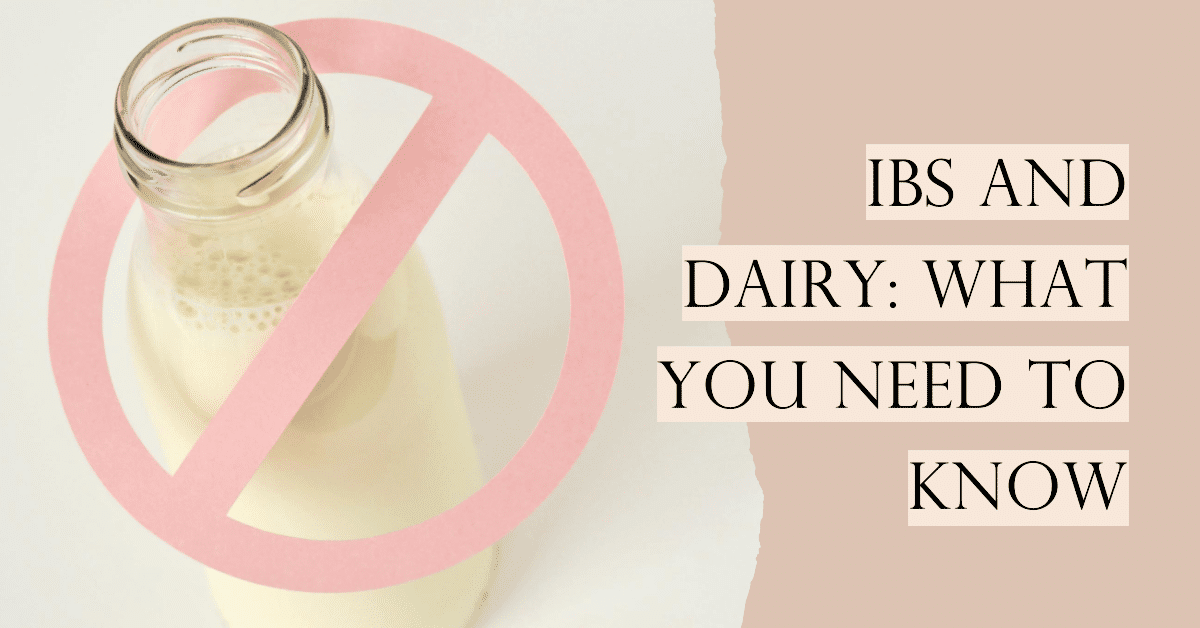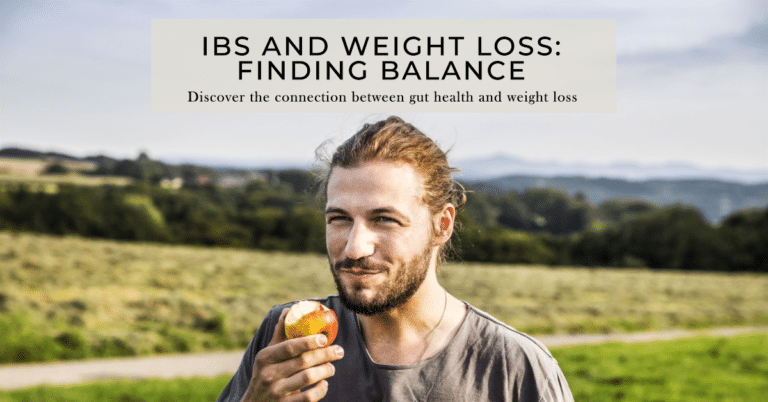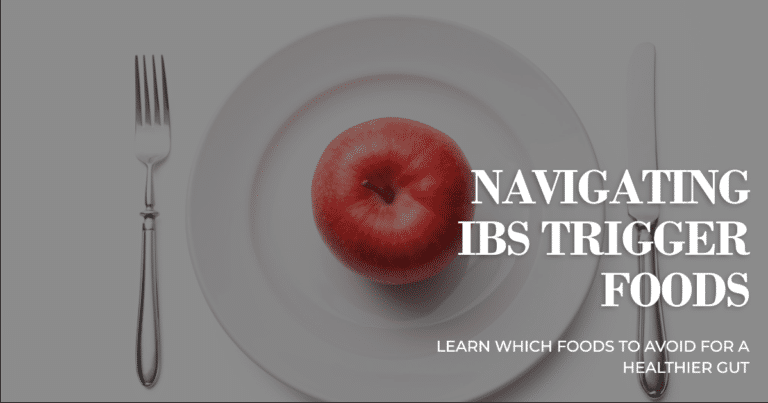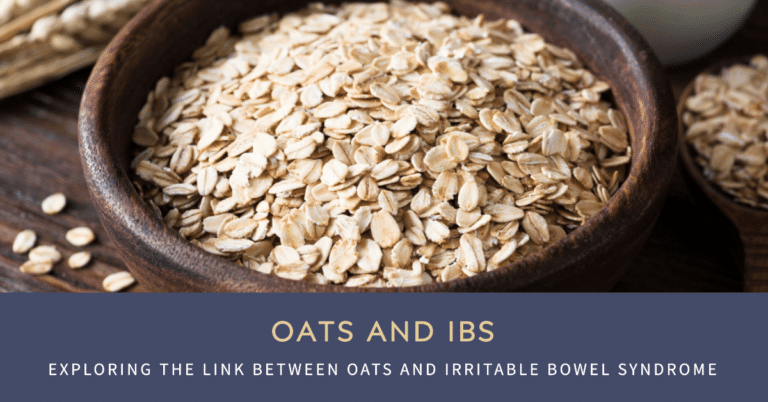IBS and Dairy: Managing Symptoms in the Face of Lactose Intolerance

Calling all dairy lovers with IBS or lactose intolerance! Don’t worry, you may not have to say goodbye to your favorite cheesy and creamy delights just yet.
By making simple swaps and following a low FODMAP diet, you can tame those dairy cravings without wreaking havoc on your tummy.
Read on to explore the link between IBS and dairy and how to work with a dietitian to manage symptoms.
Get ready to conquer your dairy cravings while keeping IBS and lactose intolerance in check! Let’s dive in!
Understanding the Burdensome Bond Between IBS and Dairy
Irritable bowel syndrome (IBS) affects around 5-10% of the global population, making it one of the most widespread chronic gastrointestinal conditions.
But what exactly is IBS? This perplexing disorder affects the large intestine, provoking uncomfortable symptoms like bloating, cramping, diarrhea, and constipation.
The origins of IBS remain somewhat mysterious, influenced by gut-brain signals, inflammation, stress, and intestinal microbiota.
Diet and lifestyle also play critical roles in keeping symptoms at bay or triggering flare-ups.
For those contending with IBS, dairy products like milk, yogurt, and cheese often spell disaster.
Are you just lactose intolerant or could dairy worsen IBS in other devious ways? Let’s break it down.
Lactose Intolerance 101: When Missing Enzymes Miss the Mark
Lactose intolerance stems from having too little lactase, the enzyme needed to properly digest lactose sugar in dairy foods [1].
When lactose passes undigested into the colon, gut flora goes wild fermenting this bonus feast, releasing gas that leads to bloating, cramping, and loose stools [2]. No fun!
But testing shows many IBS patients actually have adequate lactase levels. So why does dairy still spell doom? Turns out, milk packs multiple compounds that can overwhelm sensitive guts even in the lactose tolerant.
Dairy’s Devious Side: Proteins, Fats, and Irritants
Beyond lactose, the proteins, fats, and other components in dairy can team up to traumatize your digestive tract.
Even if you produce enough lactase yourself, dairy finds other ways to wreak havoc. Clever milk!
Research reveals the whey and casein proteins naturally found in dairy can instigate immune issues in some folks.
Meanwhile, cream, butter, and milk fat can slow digestion, giving irritants more time to provoke the intestinal lining.
Additionally, bioactive molecules present in all dairy may further kindle chaos in sensitive intestines already prone to reactivity.
When you have IBS, dairy’s many mechanisms of mayhem gang up to brew the perfect storm.
Reducing Dairy’s Damages: Tips for Tolerating Milk with IBS
If dairy stokes your symptoms, is avoidance your only recourse? Not necessarily.
Here are some tips to enjoy dairy without so much grief and regret:
- Trial a dairy detox for 2-4 weeks under a registered dietitian’s guidance to see if symptoms improve
- Slowly reintroduce dairy while tracking reactions closely to find your personal tolerance thresholds
- Stick to low-lactose dairy options like aged cheeses and yogurt
- Use lactase enzyme supplements to boost digestion of higher lactose dairy
- Limit high-fat sources like cream, butter, custard and ice cream
- Try lactose-free cow’s milk or opt for plant-based milks like soy, almond and oat
- Test sheep or goat’s milk, which contain different proteins than cow’s milk
With patience, attention, and some savvy detective work, you can pinpoint your body’s limits on dairy proteins, fats, and lactose.
With a bit of trial and error, you can customize your diet based on your unique sensitivities.
For example, a few nibbles of cheese or a splash of creamer may be fine for some IBS patients.
Final Thoughts on IBS, Dairy, and Your Delicate Digestion
Contending with IBS and its food triggers demands diligence as you determine what throws your body off balance.
But identifying your personal limits gives you control over symptoms and improves your quality of life.
While challenging, navigating this journey reveals the intricate connections between diet and digestive health.
Mindful eating tuned into your body’s unique signals will help you feel your best every day.
As for dairy, tread lightly but don’t fear it completely.
With careful testing and finding your thresholds, you may be able to keep treasured foods like yogurt, ice cream, and cheese in your life, even with IBS.
That’s something to raise a frothy cappuccino to!
Disclaimer: The content of this article is for informational purposes only. It is important to consult a registered dietitian for personalized advice.
Disclaimer: This content is based on my personal experience as an individual diagnosed with celiac disease and IBS (Irritable Bowel Syndrome) who follows a strict gluten-free diet. This does not constitute medical advice. Please consult a medical professional, nutritionist, or qualified dietitian for personalized, professional advice.






